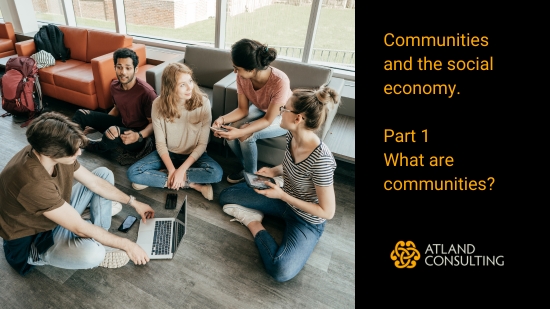On 12-13 February 2024, European Ministers responsible for the social economy met in Liège to adopt an innovative roadmap, marking a collective commitment towards strengthening the social economy as a key driver for sustainable economic development and social inclusion in the European Union.
A further step towards strengthening the social economy in Europe. A sector in which the European Union sees a key element for the implementation of the green and inclusive policies that have been projected in the Green Pact.
What is good about it? That it is committed to a sector that facilitates the structuring of the territory and the implementation of economies of scale. Cooperatives and social enterprises have a strong presence in the rural world, especially through agriculture.
The public administration of the member countries understands the need for an increase in professionalism and knowledge management among professionals in the sector. This has been one of the historical problems of the sector. I know of many cases of managers managing budgets of even tens of millions of euros who had a salary equivalent to that of a technician in the private sector. As a result, very good projects or entities have come to a standstill due to the lack of people to pull them forward because of the lack of competitive salaries.
Cross-sectoral cooperation and the reinforcement of subsidies are again mentioned as potential solutions and it is made clear in the Liège Roadmap that the time is ripe for further investment in a sector in vogue.
This is where I must disagree. On the one hand, we at Atland Consulting believe in and promote the Action Plan for the Social Economy that was approved by the European Commission to improve the economic impact and the quality of jobs by converting the economy into an industrial sector. On the other hand, it seems to us that this treaty comes late and enters like an elephant in a china shop. How are cooperatives (one of the pillars of the social economy) going to be strengthened with the current CAP, other sectors continue to be encouraged to support the social economy, and the commitment to subsidies is maintained, for what? More statistics, more regulation and more awareness raising will not generate competitiveness.
We are firmly committed to professionalising social enterprise, to implementing sustainable business models and to increasing the financial sustainability of these organisations by creating services that meet needs. We are in a difficult economic situation, which is going to get worse. Do you remember how in the crisis of 2008 – 2015 the income of the social economy was cut by 60%? This roadmap does not take into account that we are or will soon be in a similar situation where the debt crisis will not (or should not) allow the maintenance of a large part of the subsidies. The Liège roadmap is devoid of reality. What about rising prices, geopolitical instability, the German crisis and the looming crisis in 2025? What do we say to a part of the primary sector that is also a fundamental pillar of the social economy? How do we raise public awareness in favour of the social economy when purchasing power and access to housing are falling all over Europe?
I don’t think that the creation of national and regional policy coordinators, the increase of regulations or the gender approach in social economy policies will answer the above questions.
I am glad to have reached the level where the Social Economy is an industrial sector and has to be productive. I am disturbed to see the lack of approximation to reality. Repeating green and inclusive a thousand times is not going to save us from the economic degeneration we are experiencing in the European Union.
How can we understand that an entity such as the Amica Association is practically bankrupted for doing the laundry for the public health service of Cantabria at prices below cost, which were not updated after the increase in inflation and energy prices? What do we do with the East of the European Union where the social economy remains at a minimum in terms of economic impact? Where do we get the money to pay for the increase in energy costs in entities that e.g. run shelters? When are we going to take a look at the marketing that hides behind impact investment and that offers profitability systems copied from traditional banking instead of betting on disruptive projects of social innovation? When will we stop paying with our taxes for ideological indoctrination NGOs – (I don’t care what colour they are, they all do it)?
We will see what the new legal frameworks will bring, but dear politicians, please start taking into account the real scenarios and the problems we are facing, this roadmap is outdated.



